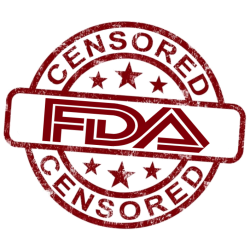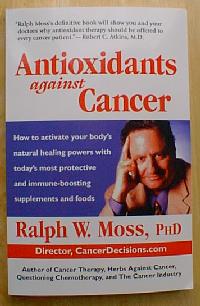
Vitamin C and Cancer
Last Updated: Sat Sep 23 12:58:41 EDT 2017
 "There was something odd about the results of the vitamin C and cancer
experiments Linus Pauling reported in the 1980s: patients lived longer
- much longer.
Those treated with vitamin C lived an average of four
times as long as control patients who did not receive vitamin C. This massive improvement was unparalleled in the history of medicine."
"There was something odd about the results of the vitamin C and cancer
experiments Linus Pauling reported in the 1980s: patients lived longer
- much longer.
Those treated with vitamin C lived an average of four
times as long as control patients who did not receive vitamin C. This massive improvement was unparalleled in the history of medicine."
Introduction
Recently, exciting research has been published that documents the ability of vitamins C, E and selenium orally to prevent most cancers, and to decrease the mortality of pancreatic cancers, stomach cancers, prostate cancers and other cancers. The Vitamin C Foundation is interested in the how and why vitamin C may help people with cancers feel better.
Almost all vitamin C experts now seem to agree, hydrogen peroxide produced by high levels of ascorbate (vitamin C) plays an important role.
However, vitamin C by itself is relatively weak at this job so don't try low dosages. Experts recommend continuous high dosages of ascorbate (vitamin C) combined with specific adjuncts (e.g. Alpha Lipoic Acid, Vitamin K3, and/or D'Fraction Maitake Mushroom.)
Most experts recommend incorporating high-dose intravenous vitamin C (IV/C) infusions to achieve the high blood concentrations necessary to kill the most tumor cells.
Expert Opinion on 14 Videos: The Case for Vitamin C Against Cancers
Talking to your Oncologist
You may be able to talk your oncologist into going along with vitamin C as an 'adjunct' (not a replacement for) conventional chemotherapy.
 Improvement
of terminal cancer patients' health-related quality of life after high
dose vitamin C administration...
No matter how effective IV/C is against tumors, the high-dose Vitamin C
therapy can become an important adjunct to standard therapies by
protecting our trillions of good cells from the adverse effects of
chemotherapy and radiation. Studies have shown that taking IV/C after
these therapies does not interfere with them and patients who take IV/C
after chemotherapy do better than those who don't get vitamin C.
Improvement
of terminal cancer patients' health-related quality of life after high
dose vitamin C administration...
No matter how effective IV/C is against tumors, the high-dose Vitamin C
therapy can become an important adjunct to standard therapies by
protecting our trillions of good cells from the adverse effects of
chemotherapy and radiation. Studies have shown that taking IV/C after
these therapies does not interfere with them and patients who take IV/C
after chemotherapy do better than those who don't get vitamin C.
Ketogenic Diet
Cancers have increased insulin receptors and thrive on sugar. All carbohydrates reduce to simple sugars during digestion. A low-carb, low-sugar (ketogenic) diet is important to starve fast growing tumors of glucose.
Glucose, a component of most sugars, competes with vitamin C for entry into cells because these molecules are similar. This may be why the low-carb diet enhances vitamin C anti-cancer therapies.
Good Advice: Take Oral Vitamin C Too - All Day
Authors Hickey and Roberts stress that vitamin C should be taken orally 24/7 to keep the oxygen "redox" pressure on cancer tumors (i.e. not only during regular intravenous vitamin C infusions.)
Handbook on Vitamin C Therapy for Patients and Doctors by Steve Hickey and Hilary Roberts
 The new Vitamin C Foundation
sugar-free chewables (with Niacin) help with compliance, i.e. one
tasty tablet every 3 to 4 hours, and they may help reduce the
sugar/carb craving.
The new Vitamin C Foundation
sugar-free chewables (with Niacin) help with compliance, i.e. one
tasty tablet every 3 to 4 hours, and they may help reduce the
sugar/carb craving.
Cameron's chewables also contain important ingredients (e.g. cherry flavor, sorbitol and xylitol) that may have contributed to the outstanding Pauling/Cameron results in their Scottish study. Visit this forum topic on how and why new Vitamin C Foundation approved chewable vitamin C may contain Ewan Cameron's Secret Weapon against cancer.
Sunsuke Konno et. al. D'Fraction protocol
Landmark Paper on Vitamin C and D'Fraction for Cancers.
Ralph Moss: Antioxidants Increase Chemo Potency Against Cancer
 Antioxidants Against Cancer
which clearly explains why antioxidant therapy should be offered to
every cancer patient.
Ralph Moss, a leading expert on cancer treatments,
provides an excellent evidence-based summary, easily understood by both
patients and their cancer treatment specialists,
Antioxidants Against Cancer
which clearly explains why antioxidant therapy should be offered to
every cancer patient.
Ralph Moss, a leading expert on cancer treatments,
provides an excellent evidence-based summary, easily understood by both
patients and their cancer treatment specialists,
The following tables from the Moss book illustrate that vitamin C the effectiveness of using vitamin C (and vitamin E) as an adjunct to conventional therapies.
| Agent Used | Decrease in Cancer Growth |
|---|---|
| Vitamin C | -5.0% |
| 5-FU | 38.0% |
| 5-FU + Vitamin C | 95.5% |
| X rays | 72.0% |
| X rays + Vitamin C | 98.2% |
| Bleomycin | 73.0% |
| Bleomycin + Vitamin C | 92.0% |
| Agent Used | Decrease in Cancer Growth |
|---|---|
| Vitamin E | 47% |
| Bleomycin | 46% |
| Bleomycin + Vitamin E | 71% |
| 5-FU | 37% |
| 5-FU + Vitamin E | 71% |
| Adriamycin | 58% |
| Adriamycin + Vitamin E | 88% |
| Cisplatin | 57% |
| Cisplatin + Vitamin E | 82% |
Source: Kedar Prasad, University of Colorado, as summarized in Antioxidants Against Cancer by Ralph Moss
Moss Reports and updates on the latest science of Antioxidants and Cancer by Ralph Moss
Review of the Recent Science
The study led by S.Y. Pan of Public Health Agency of Canada, Ottawa, Ontario, Canada and colleagues showed that premenopausal women who had taken zinc supplements for 10 years or longer were 54 percent less likely to develop breast cancer, compared to those who had not.
The study also showed that supplementation of multivitamin, beta-carotene, vitamin C, vitamin E and zinc for 10 or more years was associated with 26, 42, 21, 25, and 53 percent reduced risk of breast cancer , respectively, in postmenopausal women.
On the other hand, dietary antioxidants including beta-carotene, alpha-carotene, lycopene, lutein and zeaxanthin, vitamin C, vitamin E, selenium and zinc or supplementation of antioxidants for less than 10 years were not associated with reduced risk of developing breast cancer.
Study: Antioxidant Intake Significantly Decreases Pancreatic Cancer Risk by 67%
Study: Vitamins E, C Cut Prostate Cancer Risk
Vitamins C and A synergistically fight breast cancer cell growth...
 A study published in the Journal of Nutritional Biochemistry found that
administering both vitamin A and vitamin C to cultured human breast
cancer cells was more than three times as effective than the
administration of either compound alone.
A study published in the Journal of Nutritional Biochemistry found that
administering both vitamin A and vitamin C to cultured human breast
cancer cells was more than three times as effective than the
administration of either compound alone.
"This is the first time the effect of combining retinoic and ascorbic acid on breast cancer cell proliferation, differentiation, apoptosis and antioxidant-related gene expression has been studied."
The Journal of Nutritional Biochemistry
Volume 17, Issue 7, July 2006, Pages 454.462
Retinoic acid and ascorbic acid act synergistically in inhibiting human
breast cancer cell proliferation
Ki-Nam Kima,
Jae-Eun Pieb,
Jin-Hee Parka,
Yoon-Hee Parka,
Hye-Won Kima,
Meyoung-kon Kima,
Corresponding author contact information, E-mail the corresponding author.
- ABSTRACT: Pharmacologic ascorbic acid concentrations selectively kill cancer cells: Action as a pro-drug to deliver hydrogen peroxide to tissues...
- Growth suppression of malignant leukemia cell line in vitro by ascorbic acid (vitamin C) and its derivatives
- Ascorbic acid (vitamin C) improves the antineoplastic activity of doxorubicin, cisplatin, and paclitaxel in human breast carcinoma cells in vitro
- Higher plasma vitamin C levels decrease risk of gastric cancer in the European Prospective Investigation into Cancer and Nutrition ...
- Research backs theory that vitamin C shrinks tumors...
-
Cancer: Intravenous Vitamin C Effective Treatment
"The United States National Institutes of Health researchers found ascorbate killed cancer cells at concentrations that would only be achievable through intravenous infusion. Normal cells were not affected by ascorbate at any concentration. [More sepp commentary]"
- Intravenously administered vitamin C as cancer therapy: three cases...
- Annals of Internal Medicine: Vitamin C Pharmacokinetics: Implications for Oral and Intravenous Use ...
- Intravenous Ascorbate as a Tumor Cytotoxic Chemotherapeutic Agent...
- Vitamin C protects against melanoma skin cancers
- Inhibition of liver cancer cell proliferation and migration with ascorbic acid (vitamin C)...
-
Large study finds vitamin C protective of stomach cancer...
But when the researchers examined the blood levels of vitamin C they found a strong protective effect. That is: they found that those subjects with the highest level of vitamin C in their blood had a 60 percent lower risk of stomach cancer than those subjects with the lowest levels.
- Vitamin C and Stomach Cancer...
- Low vitamin C linked to stomach cancer...
- Pharmacologic ascorbic acid concentrations selectively kill cancer cells: Action as a pro-drug to deliver hydrogen peroxide to tissues ...
- Ascorbic Acid (Vitamin C) Kills Cancer Cells...
- Colds "may trigger child cancers" ...
- High antioxidant vitamin intakes reduce adverse effects of chemotherapy in children with acute lymphoblastic leukemia...
- Inhibition of liver cancer cell proliferation and migration with ascorbic acid (vitamin C)...
- Combination therapy with vitamins C plus E inhibits human prostate cancer cell growth...
- In vivo antitumor effect of ascorbic acid, lysine, proline and green tea extract on human prostate cancer ...
- Autoschizis: How vitamins C and K3 kill cancer cells...
- More on vitamin induced autoschizis for prostate cancer...
- Orthomolecular oncology review: ascorbic acid and cancer 25 years later...
Hickey/Roberts Important Cancer Book Ready for Download
Dr. Cathcart's Vitamin C and Cancer Page
Preparation of Sodium Ascorbate for IV and IM Use... Cathcart's Written Instructions for Physicians
Nobel prize winner's letter on vitamin C and cancer...
NIH (Levine's) Vitamin C/Cancer Paper Now Available - Free Download (pdf)
Even the mainstream is slowly recognizing value of vitamin C in the fight against cancer.
Animal-Based Nutrients Linked With Higher Risk Of Stomach And Esophageal Cancers Vitamin C supplements reduce stomach cancer by 40% Yale researchers also found that regular users of vitamin C supplements were at significantly lower risk of stomach cancer.
Vitamin C and Vitamin K3 cause massive cancer cell death. From Science News.
Vitamin C Foundation comments: Are high antioxidant intakes bad for your health?
Statin Cholesterol-Lowering Drugs and Cancer...
 These data coupled with an absence of reports in the clinical
literature of Ascorbic Acid sensitization strongly support the safety
of these ingredients. Note: Report states that fear of tumors is
misplaced, as effect is compared to bicarbonate of soda.
These data coupled with an absence of reports in the clinical
literature of Ascorbic Acid sensitization strongly support the safety
of these ingredients. Note: Report states that fear of tumors is
misplaced, as effect is compared to bicarbonate of soda.
